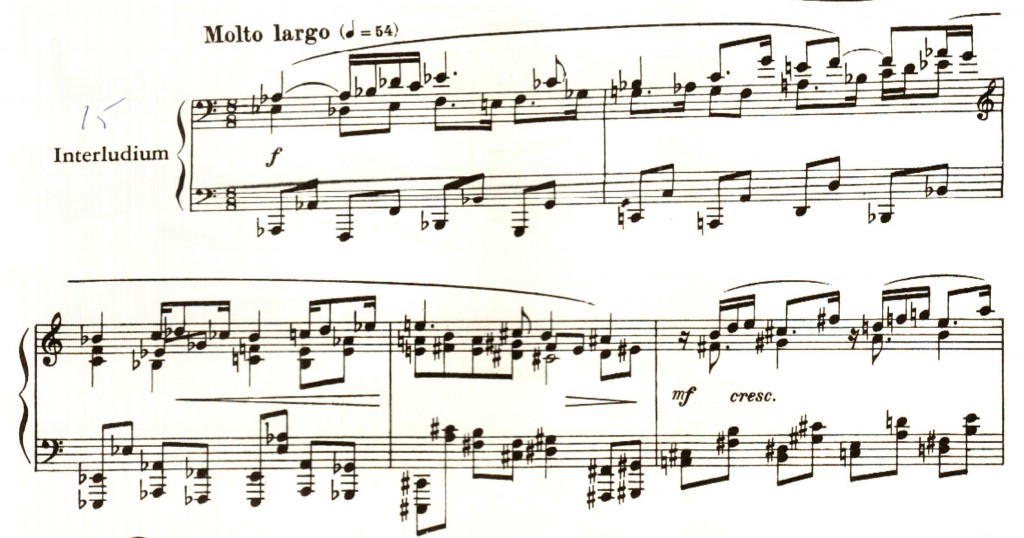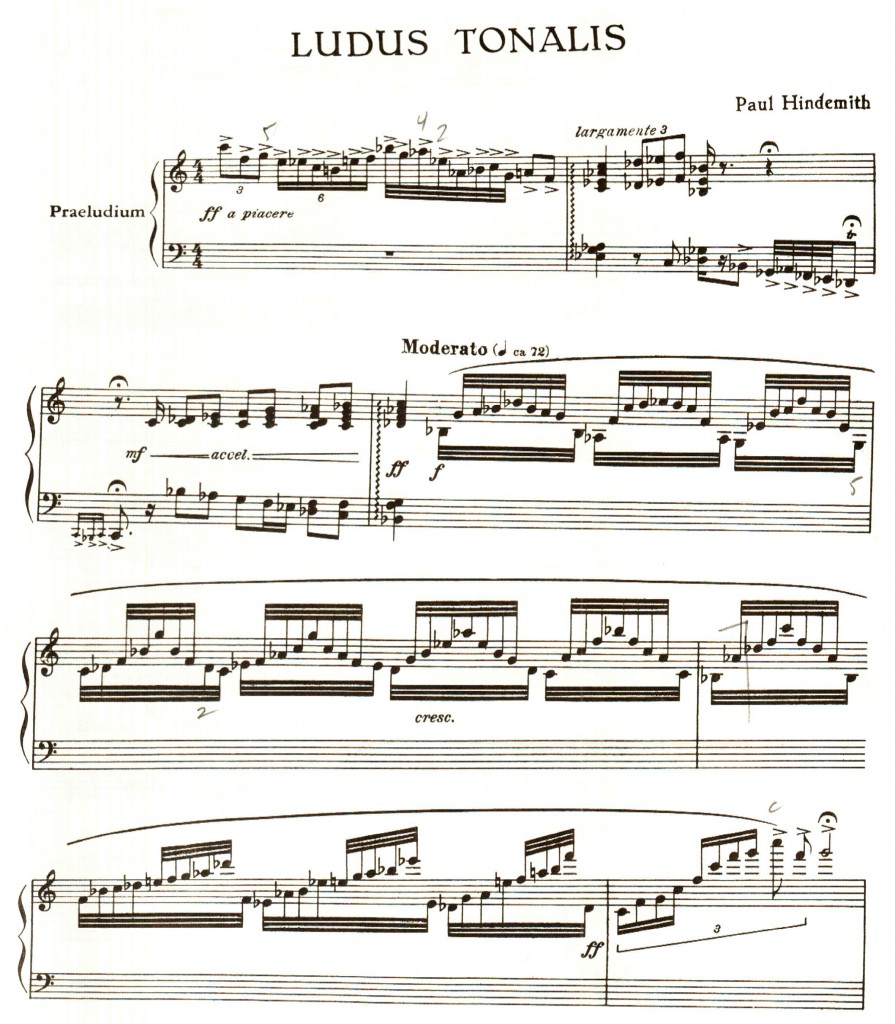

#Hindeminth ludus tonalis professional
He resigned from the Frankfurt Opera and concentrated, with financial help from Schott, almost exclusively on composition, though he continued as a professional chamber musician for almost the rest of the decade.ġ922 was indeed the turning-point for the twenty-six-year-old. The production of these operas in 1921/2 was the breakthrough Hindemith had been looking for as a composer. The third, Sancta Susanna (given in Frankfurt) caused a sensation-as much for the story (about a sex-obsessed nun) as for the music. Busch decided to produce two of them in Stuttgart. With his theatrical background, Hindemith had written three one-act expressionist operas. Busch had learned of Hindemith’s work and asked to see some scores.

Although Hindemith was writing music regularly, he was diffident about showing his compositions to others. Whether the occasion of the dance was the reason for their return, or whether (as Strecker had expressed some interest in them) Hindemith shied at the idea of such pieces being published with his name at the time when he was seeking to establish himself as a serious composer, it was clear that he was au fait with the latest popular music.Īmong the conductors under whom Hindemith led the opera orchestra in Frankfurt was Fritz Busch. I am very good at it … ’ He actually sent Strecker some of these pieces, but soon afterwards they were returned as Hindemith said he needed them for a dance at which he was to play. When I run out of any decent ideas I always write such things. In March 1920 Hindemith offered Strecker some ‘foxtrots, Bostons, ragtimes, and other junk of that kind. His composing now continued apace, and in 1919 he wrote to the music publishers Schott and struck a deal with the company which lasted for the rest of his life, even if, at first, Willy Strecker (the son of the head of the firm), on seeing the music Hindemith wrote after his Second String Quartet (Op 10, 1918)-the work that commended him to the company-baulked at some of these compositions, fearing their commercial failure. His father had been killed in action in Flanders in 1915.Īfter the war, Hindemith returned to lead the Frankfurt Opera Orchestra, but the artistic climate was subtly changing. They were from old, patrician families and the young corporal spent much time in organizing chamber music concerts for his superior officers, for which he was thankful. Whereas other musicians and composers fought at the front, and some were wounded or killed, Hindemith was fortunate in his commanding officers. His ability as a violinist ensured he had plenty of work, but in 1917 he was called up for military service. Hindemith’s earliest works exhibit little of the total originality that marked them out from about 1922 onwards-chamber music featured much among them, for he played in various ensembles, largely for pleasure, not for profit. He was also a fine pianist and mastered several other instruments.

By the age of twenty, and a member of the Frankfurt Opera Orchestra, he had played Bach’s Chaconne and the Beethoven Violin Concerto in public and had begun to compose. Paul Hindemith’s gifts were wholly exceptional. Born in 1895 near Frankfurt, the son of a house-painter, Hindemith’s early life was dominated by his strongly independent father who-himself musical-encouraged his naturally musical children (Paul, Rudolf and their sister Toni). They had first met in the early 1920s when Hindemith was leader of the Frankfurt Opera Orchestra and Furtwängler was the conductor of that city’s Museum Concerts, prior to his appointment in 1922 as chief conductor of the Berlin Philharmonic Orchestra in succession to Arthur Nikisch.ġ922 was also a significant year for Hindemith. Both of these great German musicians were in exile as a result of their opposition to the Third Reich. At that time, Hindemith was living in America, Furtwängler in Switzerland. 'Hindemith’s success lies in his being a power for order.’ Thus Wilhelm Furtwängler, writing in his Notebooks for 1945.


 0 kommentar(er)
0 kommentar(er)
